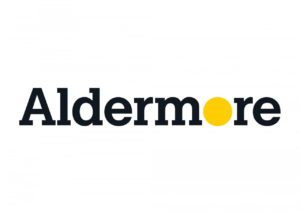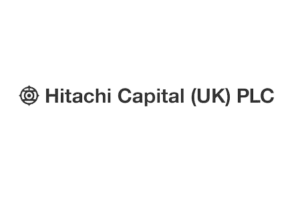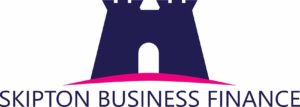The total amount of money owed to small businesses in late payments now stands at a staggering £23.4bn, according to payment processor Pay.UK.
Just over half of Britain’s 5.9m small businesses said they were owed outstanding invoices before COVID-19 struck. That figure has now gone up to 62 per cent, according to the Federation of Small Businesses.
Small firms in wholesale, legal and accounting, and advertising and marketing have been the hardest hit.
On top of that, it costs Britain’s small businesses £4.4bn a year just to get paid, with around a quarter of SMEs spending over £500 a month chasing late payments.
Given this dire late payment situation, it is hardly surprising more small businesses are turning to invoice finance.
One solution could be to turn to invoice finance and borrow against the value of your unpaid invoices. In exchange, the lender charges interest on the longer it takes you to actually get the invoice settled and repay it. But it can be a useful lifeline for a struggling small business.
Stuart Lawson, chief revenue officer of finance aggregator Funding Options, says that he’s seeing much more interest in invoice finance, which has shrugged off its bad reputation. His company has seen more invoice finance products sold in the first half of 2020 compared with the entirety of 2019, so demand is growing.
“Late payment must be one of the drivers for the uptick in invoice finance,” says Lawson. “But the main driver is that invoice finance provides working capital and is very well suited for small, high-growth businesses.”
What is invoice finance?
Invoice finance uses unpaid invoices as security for funding. It allows a business to access finance for cashflow or investment, using an often-untapped asset on its balance sheet.
The term invoice finance is an umbrella one, covering three specialisms: invoice discounting, invoice factoring and single invoice finance.
Why would I use invoice finance at all?
Typical time for an invoice to be settled can be from between 30 up to 120 days, causing issues with cash flow for the business and potentially slowing growth.
And because lenders look at your invoices owed rather than the financial health of your company, you may find it easier to raise invoice finance than other forms of debt.
What is invoice discounting?
A lender gives you between 80 per cent and 90 per cent of your unpaid invoices upfront, in the form of a loan or line of credit. Once your client has paid the invoice, you repay the invoice finance house back the amount borrowed plus interest. You are the one responsible for getting the invoice settled.
Some invoice finance houses link up to your automatic accounting system, deducting their interest and fees before the releasing the money back to you.
Pros of invoice discounting
– Quick cash and improve cash flow
– Better rates than overdrafts
– Get more cash than a bank loan or overdraft
– Releases up to 80-90 per cent of invoice value
Cons of invoice discounting
Expensive way to borrow money, more expensive than a bank loan stretched over three to five years
What is invoice factoring?
For invoice factoring, you sell the invoice to the invoice finance house, which takes up credit control on your behalf with the creditor. With invoice factoring, the lender pays you around 95 per cent of the outstanding invoice upfront. Once that invoice is settled, they send you the balance, less their fee and interest. They take control of your sales ledger to ensure debts are settled promptly and in full. Invoice factoring is more expensive than invoice finance because the factoring lender assumes the risk of non-payment.
Why does invoice factoring have a bad reputation?
Invoice factoring companies do try to be discreet about who they are when they chase payments, describing themselves as a third-party representative of your team. However, it does mean that you lose your ability to manage your personal relationship with your client, which may be more subtle than a black-and-white creditor/debtor relationship.
Also, some invoice finance companies in the past have been a little heavy handed when it comes to chasing down unpaid invoices.
Lawson says: “Yes, you lose that nuanced relationship with clients but the opportunity to let someone else do all the invoice chasing is still a pretty attractive one.”
What is single-invoice finance?
Single invoice finance means that the borrower can seek invoice finance for just a one-off invoice. It is geared towards younger companies that have already established, regular customers.
Would I qualify for invoice finance?
Broadly speaking, prerequisites for invoice finance are:
- Your business trades with other businesses (not consumers)
- You are a limited company or LLP
- You offer industry standard credit terms
- Some lenders have a minimum number of monthly invoices sent per month requirement
- Your minimum turnover of £50,000
Is invoice finance regulated?
Currently, the asset-based financing industry is not regulated by the Financial Conduct Authority (FCA) in the UK.
Because of this you need to be careful when researching potential lenders that:
- You’re not being tied into a contract of longer than 12 months
- That all applicable fees are clearly stated
- The contract should include a clear termination clause
- Termination fees should never exceed two months’ minimum service fees
Lawson recommends researching each invoice finance lender, because each proposition is slightly nuanced. On the plus side, many providers are fast, simple and connect with open-banking software so you can get a decision in minutes.
How much does invoice finance cost?
With invoice discounting, there’s an interest charge but with invoice factoring there’s a service charge as well as an interest charge.
Invoice finance houses charge between 1 per cent and 4.5 per cent interest for invoice discounting while the invoice remains unpaid. The discount charge will be calculated daily following the advance of the money. This means you will be charged more if your customer takes longer to pay. Discount charges are paid either weekly or monthly, depending on what the lender prefers.
If you go down the invoice factoring route, there is a service charge on top of that. The service charge – a catchall term covering management, collections and administration costs – is charged as a percentage of your company’s gross turnover. Typical rates run at between 0.75 per cent and 2.5 per cent.
How does invoice finance work?
- Invoice your customers and send a copy of the invoice to the factoring provider or discounter
- Invoice provider pays you up to 95 per cent of invoice value, usually within 23 hours
- If invoice discounting, you are responsible for debtor collection and you retain control of your sales ledger
- If factoring, the provider chases your customers, takes responsibility for credit control and collects full payment from your customers
Top 5 best invoice finance companies in UK
Invoice finance the top 5 lenders
| Lending since | Invoice finance per year (£) | No. SME customers | Minimum turnover | Lending % | Cost | Length of time for loan to arrive | |
| Aldermore | 2009 | £414m | N/A | 500,000 | 95% | N/A | 24hrs |
| Bibby | 1982 | £590m | 12000 | N/A | 100% | N/A | 24hrs |
| Close Brothers | 1984 | N/A | N/A | 500,000 | 90% | N/A | N/A |
| Hitachi UK | 1995 | £900m | 800 | 50,000 | 90% | 2-3% finance fee plus set-up charge and service fee | 24hrs |
| Skipton | 2001 | £1.1bn | 800 | 250,000 | 95% | From 1.95% above base rate | 24 hrs |
Aldermore Invoice Finance
History
Aldermore has been lending invoice finance since 2009 when it acquired Cattles Invoice Finance
Invoice finance arranged in any one year
£413.9m (as at the end of June 2019)
Number of small business customers
Aldermore provides funding from £50,000 upwards and is fully focused on the SME marketplace
Minimum turnover required
£500,000
Percentage of outstanding invoices lent against
Up to 90 per cent
Cost of invoice finance
N/A
Length of time for loan to appear
Typically within 24 hours
Why should I go with to Aldermore as opposed to another invoice finance house?
Alongside its flexible invoice finance funding, Aldermore offers dedicated and personal support through a relationship manager.
“That means our clients can be confident their business will always operate smoothly. We can get them access to quick and easy funding.
“But above all, we are their trusted and experienced partner, at their side as they achieve business aspirations and goals. We will provide our clients with tailored advice and expert insight every step of the way to help add value to their business. We can help established SMEs, in a range of industries including manufacturing, services, recruitment, IT, construction and more.”
Bibby Financial Services
History
BFS has been supporting businesses with invoice finance since the business’s inception in 1982.
Invoice finance arranged in any one year
In 2019 BFS approved £590m in new funding in the UK, Europe and Asia.
Number of small business customers
BFS currently supports more than 12,000 SMEs worldwide.
Minimum turnover required
None – BFS considers applications from all types of SMEs, ranging from start-up enterprises to established corporate businesses.
Percentage of outstanding invoices lent against
100 per cent
Cost of invoice finance
N/A
Length of time for loan to appear
Typically within 24 hours
Why should I go with BFS as opposed to another invoice finance house?
“As a funder supporting many businesses other lenders often won’t consider, we have a unique risk appetite. We remain very much open for business, supporting a variety of SMEs from small start-ups to established corporate businesses. We take pride in our relationship-based approach to funding, so we judge each funding application in its own merit rather than automated responses based on set criteria, which sets us apart from other lenders. During this difficult time for UK plc, we’re committed to working with businesses in all sectors to overcome challenges regarding cashflow, working capital and exchange rate volatility.”
Close Brothers Invoice Finance
History
Although Close Brothers Group was established in 1878, it only entered the invoice finance market in 1984. Today, Close Brothers is listed on the FTSE250.
Invoice finance arranged in any one year
N/A
Number of small business customers
N/A
Minimum turnover required
£500,000
Percentage of outstanding invoices lent against
90 per cent
Close Brothers also offers a Liquidity Plus product that covers 100 per cent of an unpaid invoice on a short- to medium-term basis.
Cost of invoice finance
N/A
Length of time for loan to appear
N/A
Why should I go with to Close Brothers as opposed to another invoice finance house?
“Close Brothers is well-known for the exceptional customer service we provide. We offer a personalised service, and people-led decision making. By working closely with SMEs, we can consider factors such as objectives and potential, rather than just turnover, to ensure requirements are met.
“As soon as an account goes live, the business is introduced to a dedicated client manager who can discuss their account, offer advice, and is empowered to adapt facilities to meet changing needs.
“We offer the flexibility of an independent invoice finance provider, combined with the financial strength and reliability of a FTSE250 company.”
Hitachi Capital (UK)
History
Hitachi Capital has been lending invoice finance for over 25 years.
Invoice finance arranged in any one year
Around £900m in 2019/20
Number of small business customers
Over 800 SMEs across sectors including recruiters to manufacturers, logistics companies and professional services.
Minimum turnover required
Typically, businesses can access invoice finance at a level of £50,000, however there is flexibility for property owners of fledgling businesses.
Percentage of outstanding invoices lent against
Up to 90 per cent of the invoiced amount released this within 24 hours, with the business receiving the remaining 10 per cent once the invoice is settled.
Cost of invoice finance
Set-up fee: An initial fee is charged to set up the account with Hitachi Capital Invoice Finance. This contributes to its costs in establishing the facility.
Service fee: This is charged as a percentage of the outstanding invoices.
Finance fee: This is charged as a percentage of the amount of money lent to the business. This is deducted from the account on release of the funds, typically between 2 per cent and 3 per cent.
Customers can use Hitachi’s invoice finance calculator to receive an estimated quote, which takes into account factors such as annual revenues, the amount they would like to release from each invoice and average time that their customers typically take to pay an invoice.
Length of time for loan to appear
90 per cent within 24 hours. The remaining 10 per cent of the invoice is released back to the client once their customer settles the invoice minus any fees/charges.
Why should I go with to Hitachi Capital (UK) as opposed to another invoice finance house?
“Known for our market leading solutions and innovative products, Hitachi Capital Invoice Finance’s team has long been recognised for providing great customer service, proven through our excellent client retention. For example, HCIF holds a rating of 5 out of 5 stars on independent customer feedback platform, Feefo.
“Additionally, we offer a six-month trial period before SMEs have to fully commit to the service, providing businesses with flexibility and time to work with our team of experts to find the right product for their business. We don’t tie client’s into long, contract periods unlike many other providers.
“Recent investment in FLi, our innovative digital onboarding solution, has allowed us to offer clients a much quicker onboarding process, with average onboarding times significantly reduced, giving businesses speedy access to funds with digital signature and improved data security. It has also allowed us to take on new business remotely during the lockdown period, providing a crucial service at what is a particularly challenging time for businesses. All of our clients are now benefiting from our new self-serve web app giving them access to MI in real time, 24 hours a day.”
Skipton Business Finance
History
Skipton Business Finance has been lending invoice finance since 2001.
Sectors specialised in
Haulage and logistics, recruitment, printing, wholesale/distribution, manufacturing and engineering and specialist services.
Invoice finance arranged in any one year
£1.1bn
Number of small business customers
800
Minimum turnover required
£250,000
Percentage of outstanding invoices lent against
Up to 95 per cent, although Skipton also offers Government-backed EFG loans alongside which can take the actual advance to over 100 per cent.
Cost of invoice finance
Rates range from 0.1 per cent to service charge and discount rates from 1.95 per cent above base rate. Each deal is viewed on its merits and costing according to risk.
Length of time for loan to appear
Generally available within 24 hours of submitting invoices for completed work via Skipton’s online portal.
Why should I go with to Skipton as opposed to another invoice finance house?
“We are unique in that we are owned by a mutual building society. Our ethos is different from many bank-owned or independent finance companies.
“We are relationship led and don’t have call centres, but real people who will know who the client is when they ring in.
“We care about our clients and each one is given direct access to a decision maker via a dedicated relationship manager, regardless of the size of the client.
“Our clients become members of the Skipton family rather than just a number with our Relationship team getting to know their business and ensuring they are given the support to reach their full potential, during good times or bad.
“The client has the comfort of dealing with an undoubted financial institution with an independent mentality providing quick decisions and outstanding service levels.”
See also: Five businesses using invoice finance to fuel growth
You can find your next career move over at the Growth Business Job Board











